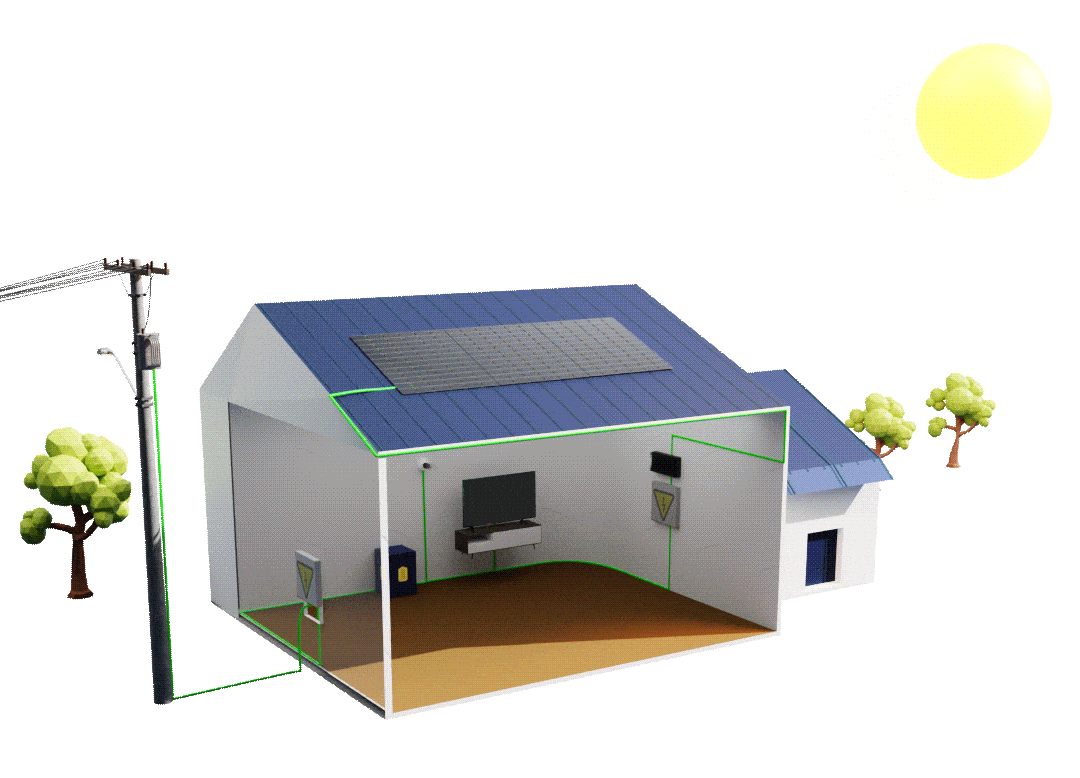
Verifying the installation and performance of solar panels is an essential element of their operation. Having solar panels commissioned upon installation confirms that they have been installed correctly and should perform to their optimal levels straight away. And periodic testing thereafter also confirms that the installation is safe and is still performing to the levels we expect. This kind of performance verification is essential in a safety sense, but is also an important part of the justification process, so we can confirm that the electricity being generated is being translated into energy savings, and therefore the anticipated pay-back period – the point at which we will see a return on our investment via energy savings – is on course to be achieved.
So testing of solar panels is essential whether you have a small installation for your home and your domestic energy needs, or are running a solar farm where you have many solar photovoltaic cells installed in a series, producing high volumes of solar energy. The testing methods you therefore use need to be practical and effective, and there are different ways of monitoring and verifying the performance of your solar panels. These commonly come down to methods used for laboratory testing and methods used for in-situ testing.
Types of laboratory testing
There are various ways that solar panels can be tested under laboratory conditions, and each has a series of pros and cons.
- Accelerated testing – The panels are subjected to accelerated aging conditions, such as high temperatures, high humidity and high irradiance. This is to simulate the effects of years of solar exposure and panel operation and the potential failure mechanisms are monitored and recorded. However, it is thought that this introduces artificial stress factors which don’t accurately mimic exposure to the sun in real time, and therefore this type of test is not considered to be the most realistic or accurate.
- Comparative testing – Different panels are ranked in terms of performance under standardised conditions. There are various different working standards in existence, and while this type of testing is more accurate it is hard to find a consensus between different standards, and hence a harmonisation on how to accurately compare the panels’ performance.
- Modelling/simulation – This is where theoretical and numerical tests are undertaken to predict the environmental factors and the mechanical properties which will influence the performance of the panels. Again, there are arguments to suggest the accuracy of these tests can be questioned, particularly when you have to factor in the calibration and validation of each modelling technique.
The benefits of in-situ testing
Testing solar panels in natural outdoor conditions gives you real-time insight into their performance and how materials might degrade over time. There is no substitute for the accuracy of real-time data and the effects of actual performance on the panels. This also ensures that you are working on data captured from actual and variable weather conditions, rather than a predication of what the weather conditions will be, which is always open to doubt. Of course there are time and cost factors attributed to this method, but the use of specific testing and commissioning equipment for solar panels, such as the TIS PVCHECKSPRO, ensures the accuracy of the results and that you are using practical and effective testing methods.
Contact Test Instrument Solutions for advice on solar panel testing
If you need any information or recommendations on the best solar panel testing equipment, then contact our team at Test Instrument Solutions today. Our range of solar panel test equipment is designed for in-situ testing in the field, and provides the user-friendly practicality and a range of helpful additional features which help to ensure your solar panel testing is reliable and accurate.
Please note that this section is for information purposes only. Anyone using equipment referred to in this section must be suitably qualified and/or experienced within the respective field. If in doubt before use, please consult a qualified electrician or engineer & thoroughly read all instruction booklets.